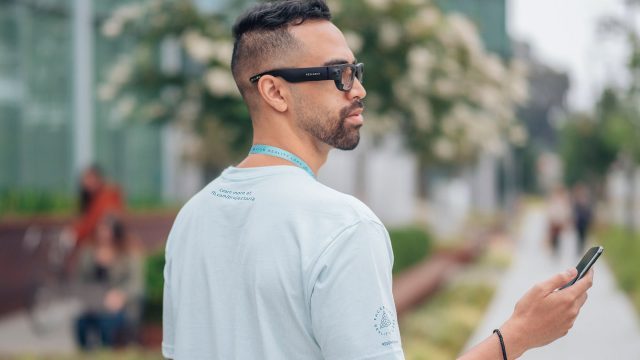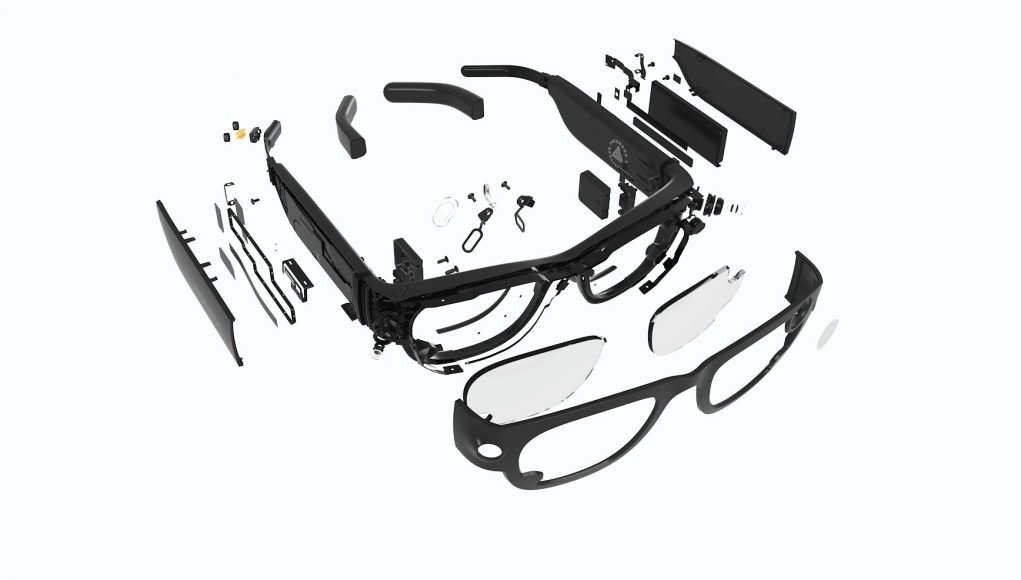Facebook is continuing its push toward delivering AR glasses and it’s showing some of its development out in the open; Project Aria is a sensor-rich pair of glasses which the company will use to train its AR perception systems and assess public perception of the technology.
Facebook is keenly aware of the backlash that faced Glass—Google’s early attempt at consumer smart glasses. The privacy implications that came with people walking around wearing a camera on their head were not lost on the public, some of which took to calling Glass users ‘Glassholes’.
By its nature, AR requires heaps of sensors to work. Cameras facing out to see the world, cameras facing in to see where your eyes are pointed, accelerometers to determine orientation, microphones to hear you speak, and plenty more. It’s like Google Glass times ten.
Project Aria is an AR headset prototype that Facebook is using for two things: gathering data for AI training and assessing the public’s perception & concerns of the technology.
As far as we know, Aria doesn’t have any displays, but it does have a full suite of the kind of sensors that will be used in a complete AR headset. It’s basically a pair of sensor-rich glasses that’s designed to soak up everything that it can see and hear. The data collected will be used to train AR perception systems that will allow AR glasses to understand the world around them in order to provide useful information to the user.
Another goal of Aria is to test the waters with public perception and uncover privacy and ethical obstacles.
“Ultimately, Project Aria is going to help us develop the safeguards, policies and even social norms necessary to govern the use of AR glasses and other future wearable devices,” Facebook says.
Starting this month, the company says, 100 or so employees will begin wearing the Aria glasses in their day-to-day lives, including in public. Facebook wants to be so ‘out in the open’ about its AR work that this first small batch of testers will be required to wear an identifying shirt and a lanyard to alert the public that the person is wearing the glasses and may be recording video and other data.

Facebook claims they’re building privacy into Aria, and their future AR devices, from the start. The company is trying to assure people that it’s taking privacy concerns seriously, and even at this early stage is taking steps to protect data:
- As with any mapping data, security of recorded data is paramount. Facebook will keep Project Aria data secure by using encryption and a secure ingestion system to upload the data from the device to Facebook back-end storage systems.
- Facebook will securely store data and the maps that are derived from that data in a separate, designated storage space, accessible only to researchers with approved access.
Once uploaded, captured data is kept under quarantine for three days, meaning it is not made available to researchers. During the quarantine period, participants can again choose to delete segments of captured data from the system by looking at low-resolution thumbnails.- Before any data gathered in a public place is made available to our researchers, it will be automatically scrubbed to blur faces and vehicle license plates.
- The research glasses do not use facial recognition identification technology, and we don’t use this data to inform the ads people see across Facebook products.
Facebook says Aria is purely a research tool at this point and not a product that it will release to the public. Granted, it gives us a very firm idea of the form-factor the company is likely targeting for its AR glasses. Aria will help the company understand if the headset’s sensors are sufficient for tracking the headset and understanding the world around the user. Provided that all works out, the next step for the company would be fitting a display system inside.







